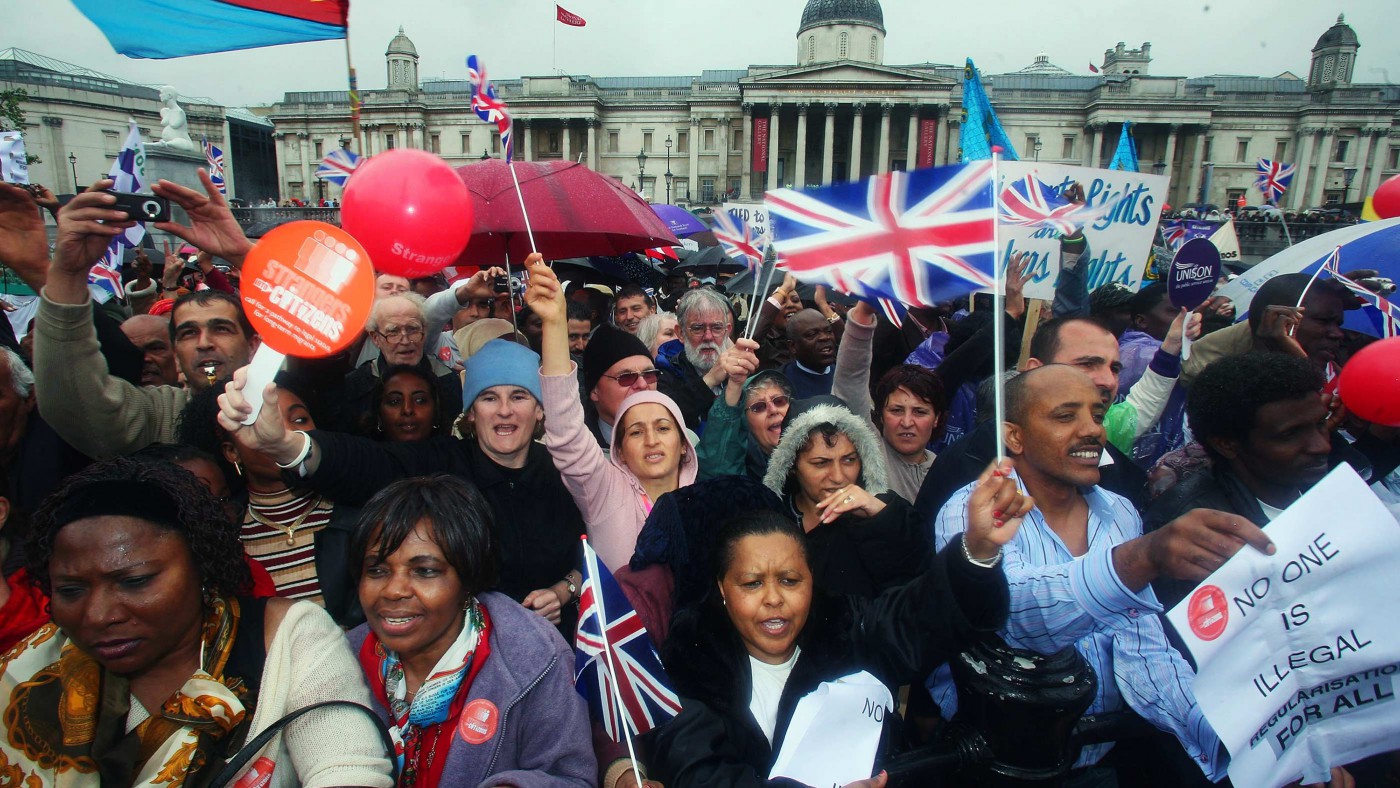When the British Prime Minister considers restricting the right granted to EU citizens to freely enter the United Kingdom, he is expressing without qualms a feeling shared by many Europeans. For some, immigrants – whatever country they may come from – are not welcome. Switzerland, perhaps, stands as an exception: Swiss voters have just rejected a referendum proposal to cut immigration by a large majority. It is not that the Swiss are particularly hospitable; they simply have a better understanding of the relationship between immigrants joining the work force and a country’s wealth.
Hostility towards immigrants is not limited to Europe, or a particularly recent phenomenon. In Asia, where the feeling of ethnic identity is stronger than in the Western world, Japan and Korea shut their doors to immigration in the name of their civilization. In the United States – and what a paradox for a nation of immigrants– Americans are divided, between supporters of the regularisation of immigrants and a nativist reaction under the Tea Party. In France, the opposition to immigration unites its largest political party: the Front National.
There is nothing new about the nearly global opposition to immigration. Only the reasons have changed. In the 19th century, Americans argued that the Chinese would never assimilate and liked opium a bit too much. In France, in the early 20th century, Italians were cast as “darkies” and persecuted. In the 1920s, Polish immigrants had to bring priests from their home country as the French clergy refused to give Mass to odd-looking parishioners. If the history of xenophobia was more widely known, the current hostility across Europe against Asians and Africans would sound like an old tune. But the other thing that doesn’t change much is governments’ incapacity to restrain immigration.
No border control, no wall along the Rio Grande or the Channel can ever contain the stream of the poor and oppressed who head North for a better life. The poor African villager that toils away his whole life will never earn the equivalent of a year’s wages in Europe, or be able to send his children to school or provide his parents with medical care. Immigrants make rational choices: they evaluate the sometimes deadly risks they run, and the profits they hope to find. In every village in Mexico or in the Sahel, they know precisely what economic and physical capital immigration has to offer: labour (especially in the United States and the United Kingdom) or social benefits (in France and Scandinavia). In host countries, because opinion demands it and because no country could “take in all the misery of the world”, governments are asked to respond.
Doing nothing could be the least costly, and maybe more efficient solution. In the United States, when the Mexican frontier was still open, workers from the South came and went, depending solely on the labour market, and leaving their family behind. This was also the case between France and the South, through Spain, until the 1970s. Academic simulations, applied to the relations between Mexico and the United States, show that the border, should it be open or close, would actually have no impact, negative or positive, on immigration flows, which depend more on the market than on regulations. Political pressure brings governments to try to manage immigration. This may be a sham policy, yet in a democracy, doing nothing is not a option. There is alternative direction, suggested by eminent market economist Gary Becker, who compared immigration to an investment.
The immigrant takes a risk, and often pays intermediaries to have access to the accumulated capital available in the host country. Becker therefore proposed that the right to enter a country, and apply for a work visa for various periods of time, should be priced and sold. This is already the case in most developed countries, but it only concerns wealthy investors. Fixing a price on all work visas would allow poorer people – who may get into debt to invest for their future – to have access to privileges now reserved to the wealthiest. This right to a paying visa would suppress most of, if not all, illegal immigration and make border controls, as well as the war on evaders (who would become rarer) easier.
It is unlikely that free market solutions – inaction and a market for visas – will ever be applied or even taken into consideration in Europe or in the United States: these outlooks on immigration are too rational and not emotional enough. We can only hope they enrich the debate, and bring a quantum of rational thinking versus political agitation. While free market thinking may enlarge the scope of democratic thinking, it does not replace it. However, under exceptional circumstances, in times of major crisis, free market solutions can also turn into what British philosopher Friedrich Hayek named an “alternative utopia” to authoritarian ideologies.


